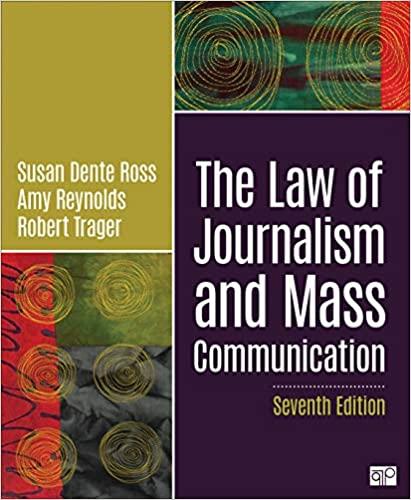Question
BUS LAW I CHAPTER 16 WRITING Theparol evidencerule provides the answer to this question. The term parol evidence means written or spoken statements that
BUS LAW I CHAPTER 16 " WRITING"
Theparol evidencerule provides the answer to this question. The termparol evidencemeans written or spoken statements that arenot contained in the written contract. The parol evidence rule provides that, when parties enter into awritten contractthat they intend as a complete integration (a complete, and final statement of their agreement), a court will not permit the use of evidence ofpriororcontemporaneousstatements to add to, alter, or contradict the terms of the written contract. This rule is based on the presumption that when people enter into a written contract, the best evidence of their agreement is the written contract itself. It also reflects the idea that later expressions of intent are presumed to prevail over earlier expressions of intent. In the hypothetical case involving Stone and Jackson, assuming that they intended the written contract to be the final integration of their agreement, Jackson would not be able to introduce evidence of Stone's promise to pay for repairs. The effect of excluding preliminary promises or statements from consideration is, of course, to confine the parties' contract to the terms of the written agreement. The lesson to be learned from this example is that people who put their agreements in writing should make sure that all the terms of their agreement are included in the writing. TheYung-Kai Lucase, which follows shortly, illustrates the application of the parol evidence rule
To determine whether a contract is completely or partially integrated, a court must determine the parties' intent. A court judges intent by looking at the language of the contract, the apparent completeness of the writing, and all the surrounding circumstances.It will also consider whether the contract contains amerger clause(also known as an integration clause). These clauses, which are very common in form contracts and commercial contracts, provide that the written contract is the complete integration of the parties' agreement.They are designed to prevent a party from giving testimony about prior statements or agreements and are generally effective in indicating that the writing was a complete integration. However, even if a contract contains a merger clause, parol evidence could be admissible when one of the following exceptions applies.
QUESTION
Dyer purchased a used Ford from Walt Bennett Ford for $5,895.She signed a written contract, which showed that no taxes were included in the sales price.Dyer contended, however, that the salesperson who negotiated the purchase with her told her bothbefore and afterher signing of the contract that the sales tax on the automobile had been paid.The contract Dyer signed contained the following language:
The above comprises the entire agreement pertaining to this purchase
and no other agreement of any kind, verbal understanding, representation,
or promise whatsoever will be recognized.
The written contract also stated:
This contract constitutes the entire agreement between the parties and
no modification hereof shall be valid in any event and Buyer expressly
waives the right to rely thereon, unless made in writing and signed by Seller.
Later, when Dyer attempted to license the automobile, she discovered that the Arkansas sales tax had not been paid on it.She paid the sales tax and sued Bennett for breach of contract.
Answer the following questions in the space provided below:
1.Who will win the lawsuit -- Ms. Dyer or Bennett Ford?
2.Explain how you reached your conclusion and the legal principles which you relied upon.
Step by Step Solution
There are 3 Steps involved in it
Step: 1

Get Instant Access to Expert-Tailored Solutions
See step-by-step solutions with expert insights and AI powered tools for academic success
Step: 2

Step: 3

Ace Your Homework with AI
Get the answers you need in no time with our AI-driven, step-by-step assistance
Get Started


